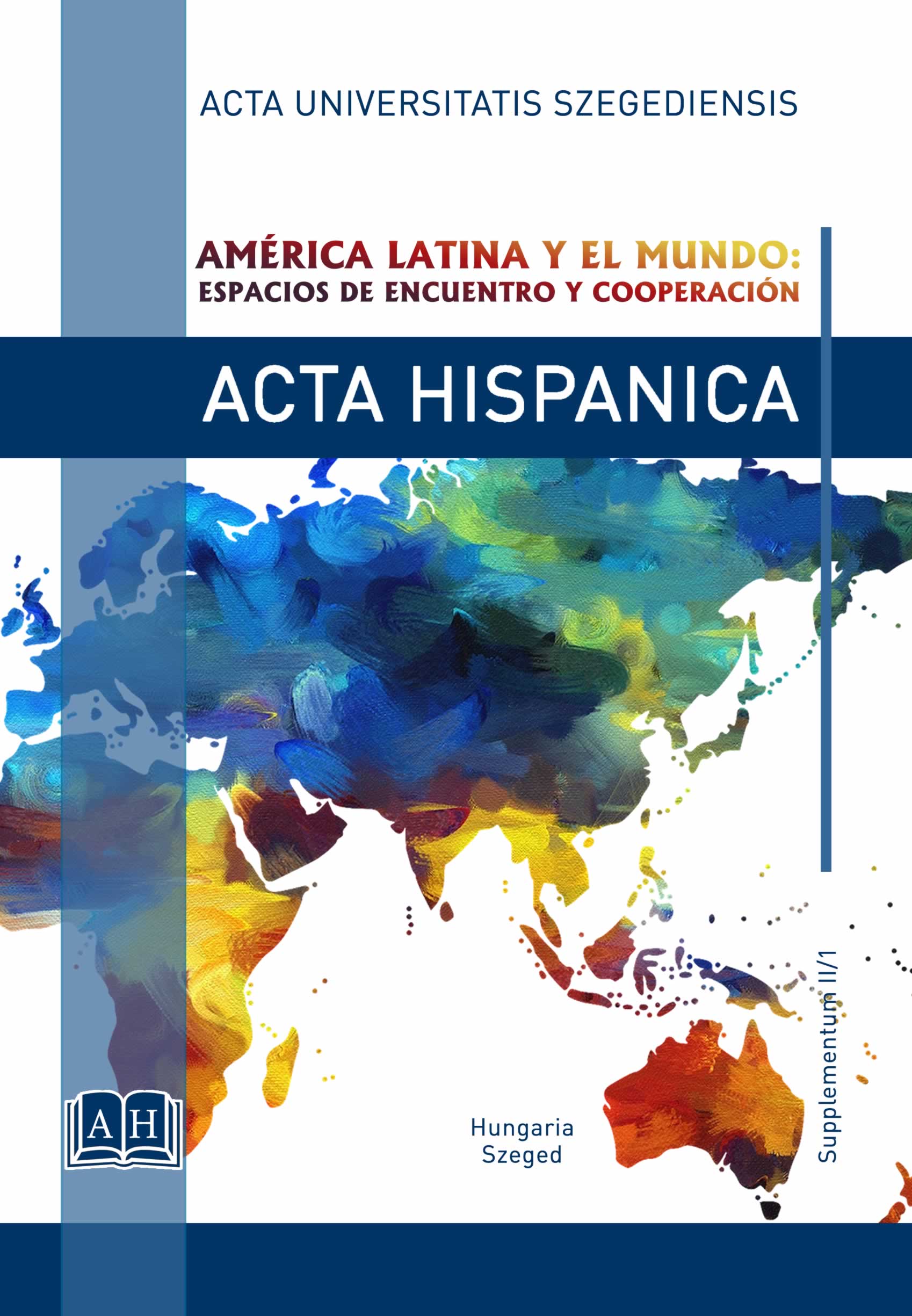Thomas Jefferson on Indigence in Spanish America The Power of the Republican Ideal
Contenido principal del artículo
Resumen
Descargas
Detalles del artículo
Citas
Bethell, Leslie (ed.) (1987). Colonial Spanish America. Cambridge: Cambridge University Press.
Ford, Paul Leicester (ed.) (1904-1905). The Works of Thomas Jefferson, 12 vols. [Federal Edition]. New York: The Knickerbocker Press.
Ford, Paul Leicester (ed.) (1892-1899). The Writings of Thomas Jefferson, 10 vols. New York: G. B. Putnam’s Sons.
Gibson, Charles (1987). Indian Societies under Spanish Rule. In Bethell (ed.). Colonial Spanish America.
Guzzetta, Charles (1985). Jefferson, Rumford, and the Problem of Poverty. The Midwest Quarterly, 26. 343-56.
Kovács, Ágnes Zsófia (2010). Az útleírás történet (A History Writing of Travel). Híd, 74. 77-78.
Lewis, Jr., James E. (1998). The American Union and the Problem of Neighborhood: The United States and the Collapse of the Spanish Empire, 1783-1829. Chapel Hill: University of North Carolina Press.
Lipscomb, Andrew A. – Ellery Bergh, Albert (eds.) (1903-1904). The Writings of Thomas Jefferson, 20 vols. Washington: The Thomas Jefferson Memorial Association.
McCoy, Drew R. (1980). The Elusive Republic: Political Economy in Jeffersonian America. Chapel Hill: The University of North Carolina Press.
McLeod, Murdo J. (1987). Aspects of the Internal Economy. In: Bethell (ed.). Colonial Spanish America.
Morgan, Philip D. (2004). Slaves and Poverty. In: Smith (ed.). Down and Out. 93-131.
Mörner, Magnus (1987). Rural Economy and Society in Spanish South America. In: Bethell (ed.). Colonial Spanish America.
Peterson, Merrill D. (ed.) (1984). Thomas Jefferson: Writings. New York: The Library of America.
Pratt, Mary Louise (2003 (1992)). Imperial Eyes: Travel Writing and Transculturation. New York and London: Routledge.
Scheer, Arthur (1998). Thomas Jefferson’s ‘Poor Woman’: A Symbol of Sentiment or Social Inequality? The Midwest Quarterly, 39. 329-46.
Sloan, Herbert E. (2001 (1995)). Principle and Interest: Thomas Jefferson and the Problem of Debt. Charlottesville and London: University Press of Virginia.
Sloan, Herbert E. (1993). The Earth Belongs in Usufruct to the Living. In: Onuf, Peter S. (ed.). Jeffersonian Legacies. Charlottesville and London: University Press of Virginia.
Smith, Billy Gordon (ed.) (2004). Down and Out in Early America. University Park: The Pennsylvania State University Press.
Smith, Billy Gordon (2004). Introduction: “The Best Poor Man’s Country?” In: Smith (ed.). Down and Out. xi-xx.
Smith, Daniel Scott (1999). Population and Political Ethics: Thomas Jefferson’s Demography of Generations. William and Mary Quarterly, 3rd ser., 56. 591-612.
Steele, Brian (2008). Thomas Jefferson’s Gender Frontier. The Journal of American History, 95. 17-42.
Steele, Brian (2012). Thomas Jefferson and American Nationhood. Cambridge: Cambridge University Press.
Vajda, Zoltán (2008). “Amazons,” “Angels,” Blacks, and Savages: National Others in Thomas Jefferson’s Thought”. Americana – E-Journal of American Studies in Hungary. 4.
Vajda, Zoltán (2007). Thomas Jefferson on the Character of an Unfree People: The Case of Spanish America. American Nineteenth Century History, 9. 273-292.
Wagoner, Jr., Jennings L. (1999). “That Knowledge Most Useful to Us”: Thomas Jefferson’s Concept of Utility in the Education of Republican Citizens. In: Gilreath, James (ed.). Thomas Jefferson and the Education of a Citizen. Washington: Library of Congress.
Washington, H. A. (ed.) (1869). Writings of Thomas Jefferson, 9 vols. New York: H. W. Derby.
Whitaker, Arthur P. (1962 (1941)). The United States and the Independence of Latin America, 1800-1830. New York: Russell and Russell.





